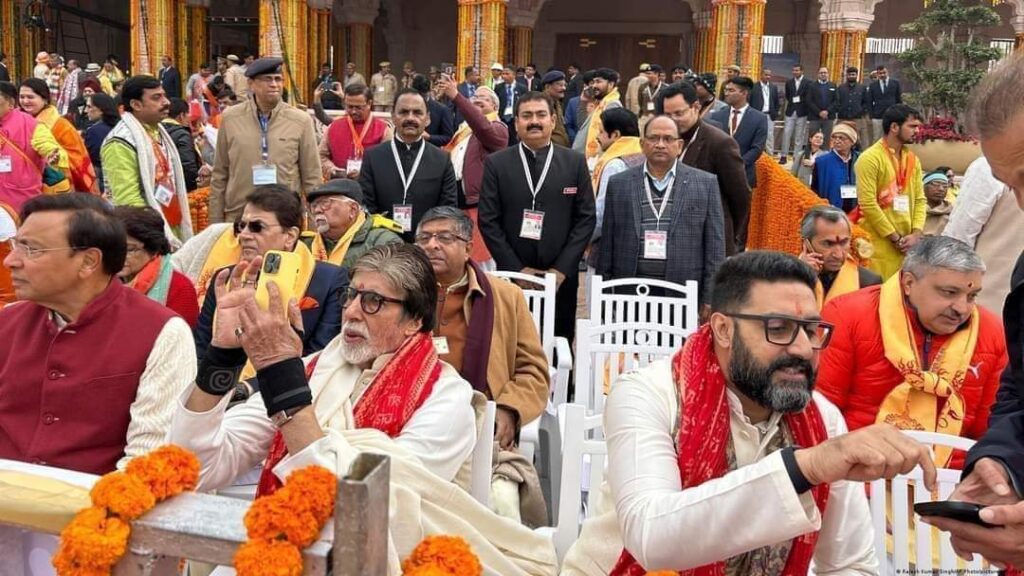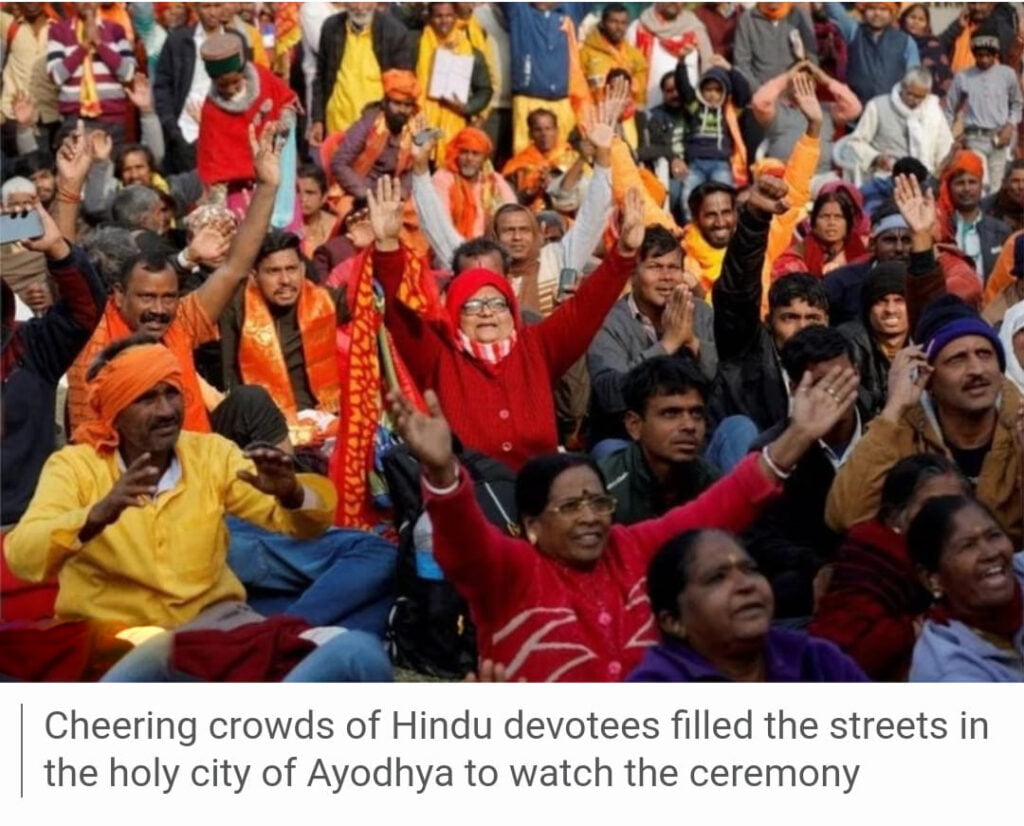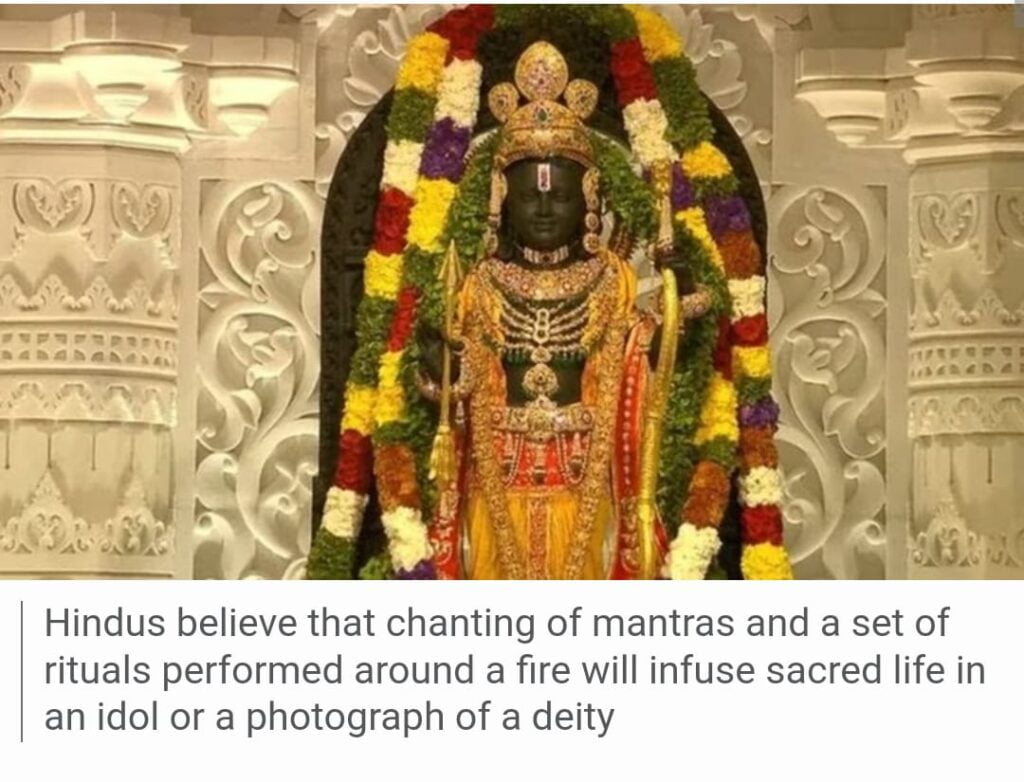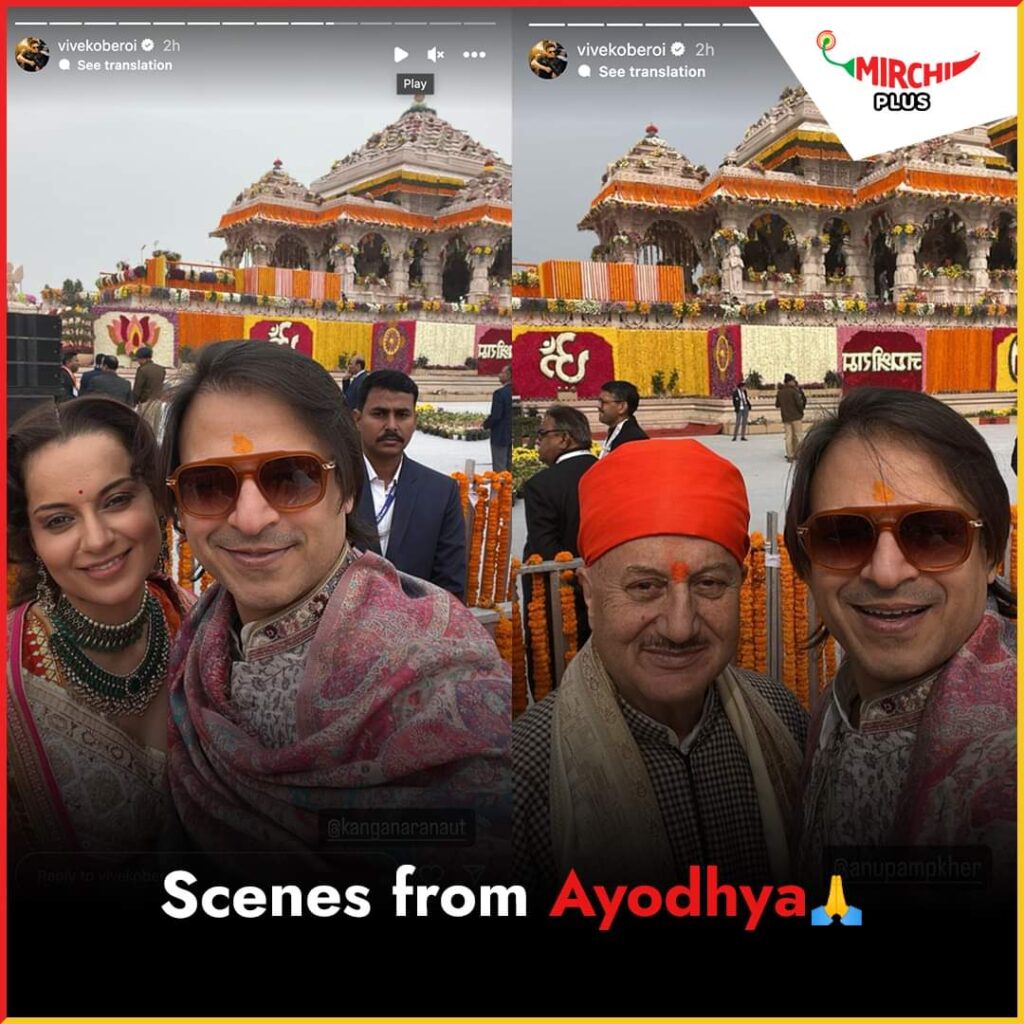Has India Now Become a Religious State?
Gandhi and Abul Kalam’s India, on Monday witnessed strange scenes of religious extremism during inauguration of Hindu Temple over ruins of demolished Babri Masjid. It was surprising to see P.M Modi performing rituals with Mr. Mohan Bhagwat ، the head of R.S.S the Hindu extremist Party.
Indian Prime Minister Narendra Modi has unveiled a majestic temple dedicated to the Hindu god Ram in the contentious city of Ayodhya, marking what he described as “a new era” for India.

The temple replaces a 16th-century mosque demolished by Hindu mobs in 1992, triggering riots with nearly 2,000 casualties. The event, attended by prominent film stars and cricketers including Amitabh Bachan and Sachin Tandulkar.
The ceremony faced opposition boycotts, alleging Modi’s political motives behind the game.

With general elections approaching, critics claim the BJP will leverage the temple’s name in a predominantly Hindu nation. Critics also accuse the government of exploiting a religious celebration in a constitutionally secular country, causing fear and painful memories for Muslims, India’s largest minority.

Televised live, the ceremony featured Modi performing rituals alongside priests and Mohan Bhagwat, head of the Rashtriya Swayamsevak Sangh (RSS), the ideological core of Hindu nationalist parties. The $217m temple, funded by private donations, opened its ground floor, with completion expected by year-end, as part of a larger $3bn city revamp.
In 2020, Modi, the face of an unprecedented and unapologetic fusion of religion and politics in India, led the Ram temple’s groundbreaking ceremony. But critics say the idea of a diverse, constitutionally secular state leading a Hindu religious ritual is deplorable.

Pakistan on Monday condemned the construction and consecration of the ‘Ram Temple’ on the site of the demolished Babri Mosque in the Indian city of Ayodhya and urged the international community to take cognisance of the growing Islamophobia, hate speech and hate crimes in India.

